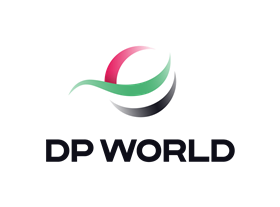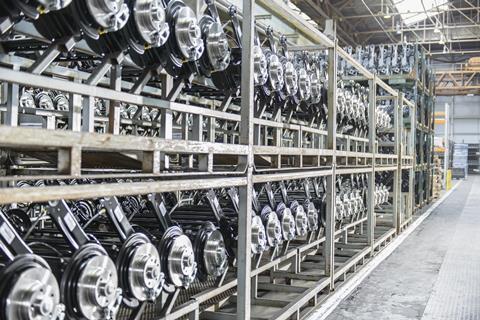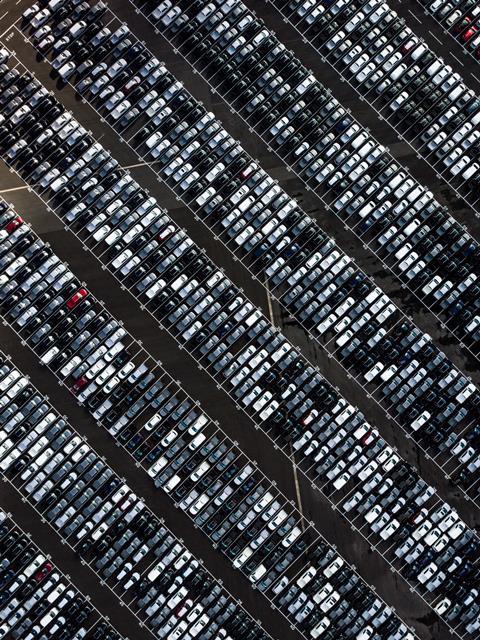This content was produced by Automotive Logistics in partnership with DP World

David D’Annunzio, global vice president and vertical head for Automotive at DP World shares his vision for automotive supply chains.
You are new to DP World, but not the automotive industry. Could you tell us a little more about your current role and previous experience?
I’ve spent my entire life in and around the auto industry. I’m originally from Michigan, the epicenter of the US automotive industry. If you grew up there, you’ll know cars are part of the culture.
I started my career with General Motors and throughout my career in the logistics sector automotive has remained as one of my areas of focus. I have a deep understanding of the sector, its unique challenges, and what automotive customers want and need from a logistics partner, like DP World.
In my new role as global vertical lead for automotive logistics, I oversee a new era of trade for the world’s leading car manufacturers. DP World has a clear vision for growth and expansion across the sector, supported by a global presence, best-in-class infrastructure and deep expertise. I am collaborating with our talented teams to help us grow our capabilities for clients and exceed their expectations.
You say that the automotive logistics landscape is changing, can you elaborate on this?
The shift from traditional internal combustion engine (ICE) vehicles to electric vehicles (EVs) is driving a transformation in the automotive logistics ecosystem. With EV sales expected to make up half of all cars sold globally by 2035, according to the International Energy Agency (IEA), this transition is happening faster than the typical pace at which consumers and industries usually adopt new technologies. Keeping up with the pace can prove challenging, particularly as technologies emerge. There is also a need for aftermarket support, which refers to the maintenance and repair of vehicles after their initial sale. It’s a tricky balancing act, with a lot of uncertainty as everyone is finding their footing in this new environment.

You mention aftermarket support, why is this so important?
The automotive aftermarket is huge, projected to hit around $1.2 trillion by 2025, with about 70% of that coming from replacement parts. It ensures that dealers and service centres can quickly access the right parts, which benefits both the OEM and the end consumer by reducing the time a vehicle is out for repairs and enhancing customer satisfaction with timely service. It’s not just about parts though, it also involves managing returns, handling warranty claims and providing technical assistance — all aimed at enhancing the ownership experience and keeping vehicles in top shape.
Does DP World provide aftermarket support in the automotive logistics industry?
Yes, we do. DP World offers robust aftermarket support by ensuring efficient parts delivery and real-time inventory management. Our extensive warehousing network means that spare parts reach dealerships and service centres quickly, minimising the time a vehicle is waiting to be repaired. Plus, with clear communication and technical assistance, we help service providers stay informed and well-equipped to handle repairs.
What do the changes you have mentioned mean for the automotive logistics process?
As the transition to EVs accelerates, manufacturers are looking for logistics partners that prioritise clarity and simplicity to keep up with market changes and ensure their supply chains are resilient and adaptable. Complexities can lead to confusion, making clear communication and streamlined processes essential. This helps everyone stay aligned and make quick, informed decisions, ultimately reducing supply chain disruptions and building trust among partners.
We achieve this clarity and simplicity by having clear visibility and streamlined processes throughout the supply chain. The launch of our freight forwarding service is a game-changer in this respect. We can deploy a ‘toolbox’ of services or capabilities made up of ports, terminals, warehouses, trucks, rail and shipping services to increase control and resilience, supported by proprietary digital technology, while also working with complementary partners across the supply chain to boost efficiency. Customers can have bespoke solutions, bringing them greater efficiency, transparency and resilience if issues arise.
We have a dedicated customer support team to provide this real-time visibility. We provide regular updates to clients about potential disruptions and logistical changes, enabling them to adjust their strategies and minimise interruptions to their operations.

Can you explain how DP World provides this transparent access to global supply chains?
To put it simply, implementing technology and integrating our systems. For example, DP World’s Smart Logistics platform integrates advanced data analytics and Internet of Things (IoT) technology to enhance supply chain visibility and efficiency. We provide dashboards and reports that break down logistics data in an easy-to-understand way. Plus, regular updates and open communication keep everyone informed, helping to foster trust and optimise operations.
What innovative technologies is DP World implementing to enhance resilience in automotive supply chains?
We are implementing technologies to make our solutions more digital from end to end. This helps us to create a more efficient and adaptable supply chain, ready to meet any challenges that come our way. For example, our online platform SeaRates helps shippers find instant shipping solutions for any type of cargo. Meanwhile, the Cargoes suite automates customs processes, digitises the ports and terminals ecosystem, and provides end-to-end tracking for intermodal shipments across sea, air and land. We are also investing in automation and robotics in our warehouses to speed up processes and using advanced data analytics to forecast and optimise inventory, ensuring the right parts are always on hand.
Can you provide examples of how DP World’s solutions have successfully adapted to recent supply chain disruptions?
Automotive supply chains have faced several challenges, such as ro-ro vessels being in short supply or OEMs shifting to direct-to-consumer sales models. These have required more flexible and scalable logistics solutions, like our Cars in Containers (CIC) initiative. This initiative represented a strategic shift to boost efficiency and reduce costs for OEMs. For example, with CIC, we open up the possibility of using all ports, not just ro-ro ports and can keep cars flowing when ro-ro capacity is constrained.
We utilise 53-foot intermodal containers and innovative racking systems to transport up to six vehicles per container. This is an industry first and using this unique solution we will be moving 30,000 cars from Mexico to the US and Canada over the coming months. The early success has sparked interest among other OEMs, encouraging us to explore the solution in other regions so we can address similar challenges wherever they arise.
What best practices would you recommend for companies aiming to build more resilient supply chains?
Instead of diversifying suppliers or having a broad network of logistics partners across regions, it is wise to simplify. By taking an end-to-end approach to the supply chain – and finding a partner to facilitate this – companies can boost efficiency, have greater visibility over their goods and more flexibility when responding to challenges. It also has benefits for aftermarket operations, reducing the chance of disruptions
For more on DP World and its finished vehicle logistics offerings, click here.


























![Global[1]](https://d3n5uof8vony13.cloudfront.net/Pictures/web/a/d/s/global1_726550.svgz)













No comments yet